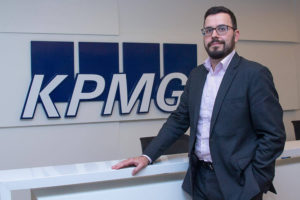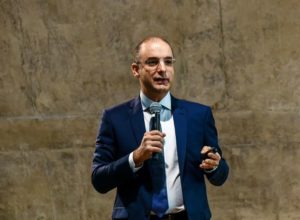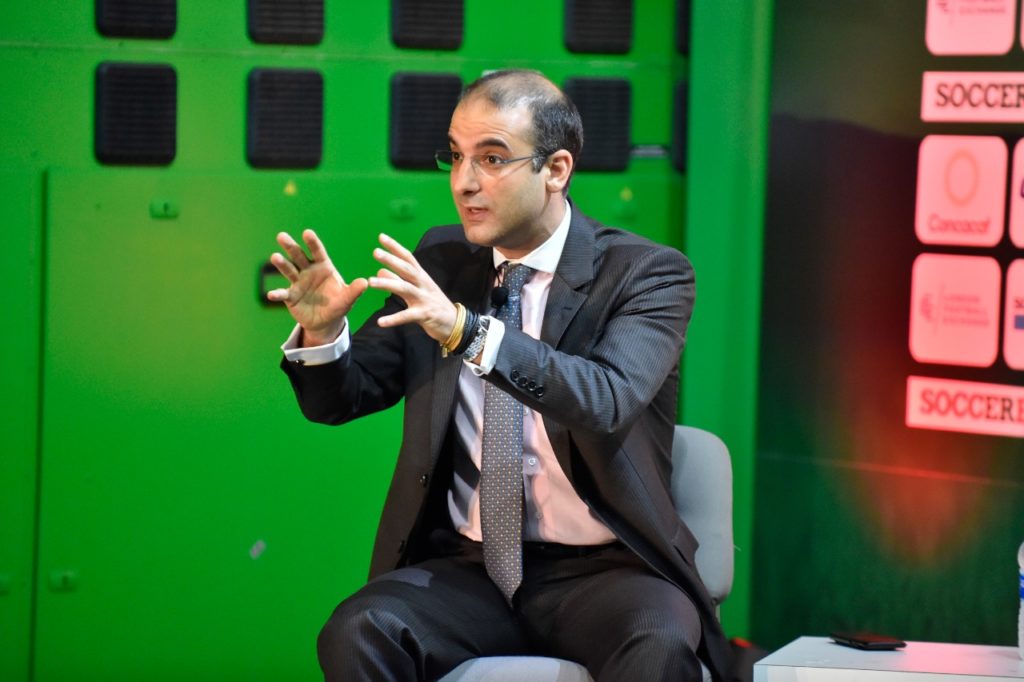São Paulo – Brazilian football is now more likely to receive significant international investments, and specialists believe there is potential for attracting Arab capital. Three months ago, a law that came into force in Brazil created the Football Association (SAF); it established the legal conditions for transforming clubs into companies, making the environment favorable for foreign investment.

Executive Francisco Clemente Pinto, head of Media and Sports at KPMG Brazil, has already noticed a movement of international investors towards football in Brazil, both from Arab countries and other parts of the world. “I see investors are interested. This law opened up an incredible pathway,” said Clemente, who is responsible for the Middle East at KPMG Brazil.
Lawyer Pedro Trengrouse (opening picture), one of the founders of Trengrouse & Gonçalves (TGA), a reference firm in the sports business in Brazil, believes in the interest Brazilian football can generate among Arab investors. Trengrouse is traveling to the United Arab Emirates and intends to have discussions on the matter. TGA has also become a member of the Arab Brazilian Chamber of Commerce (ABCC). The lawyer believes Arab investment can revolutionize Brazilian football.

The Brazilian football clubs were primarily created as non-profit civil associations, often from neighborhoods. They later became large structures, with massive cash flow, some with high financial liabilities and without professional management. They can grow into companies through the new law, enjoying the mechanisms to raise funds, including selling the club to foreign capital. They will also have special conditions for paying taxes.
Before the law that organized the limited liability football corporations came into force, there had already been business transformations in some Brazilian clubs, such as Bragantino, which became Red Bull Bragantino and is currently in the hands of the Austrian company Red Bull, and Cuiabá Esporte Clube, which was purchased by the Brazilian Dresch family, which operates in the rubber sector. Both teams have had a rapid rise in Brazilian football since the purchases happened. They, however, are not characterized as limited liability corporations because they were transformed before that possibility.

The new law provides that a limited liability company in football can be constituted either by an entire club, just by its football department, or created from scratch. It also determines as a tax payment 5% of the income in the first five years and 4% in the following, and the tax is only levied on sales of players from the sixth year onwards. Clubs currently do not pay taxes, but the fees that will apply to SAFs are lower than what companies generally pay.
“When you create a limited liability company, you impose governance, management, and rules allowing investors to allocate money safely,” says Clemente. The KPMG executive sees the law’s three significant benefits: the creation of a legal framework to attract investors, the possibility of using tools and instruments to renegotiate debts, and the improvement of governance in sports clubs.
Professional league
The law opens up the possibility of forming a professional league, which Clemente and Trengrouse believe could also stimulate interest in foreign investment. The league would collectively negotiate broadcasting, merchandising, and ticket rights for the clubs, among other matters. “You will be able to make Brazilian football grow by three or four times,” says Clemente. Trengrouse believes in a 330% growth in revenue from the league.
European countries like England and Germany have created professional leagues. “The significant opportunity we have here is to look at Brazilian football as something with exceptional growth potential. Among the ten largest football markets in the world, only Brazil does not have a professional league or club company; all the others have already advanced in this direction and made a tremendous economic leap,” says Trengrouse.
Affordable investment

The favorable scenario for international capital in football goes beyond the legal framework brought by the law, according to the KPMG executive. He also sees the space Brazilian football has to advance as attractive. “There is the whole point of having a lot to grow, of investors entering when the business is small to grow it; every investor wants that,” he said. The appreciation of the dollar against the Brazilian real also makes investment in Brazil cheap for foreigners.
Lawyer Trengrouse also sees other factors as favorable to the arrival of Arab investment in football, such as the closer ties between Brazil and the Arab world in strategic sectors. He recalls president Jair Bolsonaro visited Arab countries and signed nine trade agreements, and Expo 2020 Dubai is taking place with a Brazil Pavilion. “It opens up the possibility for Brazilian football to be considered in the context of these large investments, for the country to dialogue with the Arab world, just like what happened in France,” he says.

French team Paris Saint Germain (PSG) was bought by Qatar Sports Investments (QSI) in 2011. Trengrouse claims this took place in the context of a strategic partnership between the governments of Qatar and France. Another example is the Abu Dhabi United Group, from the UAE, which acquired the English club Manchester City in 2008. With a high injection of Arab resources, the two teams grew substantially and have often been in the top positions in football in their countries.
The transformation into a football limited liability company is optional for Brazilian clubs. Still, the TGA lawyer believes it will become mandatory in the future, as happened in countries like Portugal a few years after the approval of the new legislation. “It brings an indication of cultural transformation; it already points in the direction that society expects clubs to organize themselves better, structure themselves better professionally, and get business investment,” says Trengrouse.
KMPG and TGA
KPMG and the TGA office work advising investors interested in the sports area in Brazil, and they also do so in partnership. Among other titles and expertise in sports transactions, Pedro Trengrouse is a professor of Sports Law at the Getúlio Vargas Foundation (FGV), vice president of the Special Committee on Sports, Lotteries, and Entertainment of the Brazilian Bar Association (OAB), and served at the United Nations (UN) as a sports consultant.
KMPG Brazil is a member of the ABCC. Francisco Clemente Pinto has over 14 years at KPMG, one of which he has worked and lived in Saudi Arabia. In addition to being head of Media and Sports and in charge of Middle East affairs at the company in Brazil, Clemente is also one of the leaders of the Restructuring Team, responsible for activities such as business development, team management, financial restructuring, among others.
Translated by Elúsio Brasileiro




